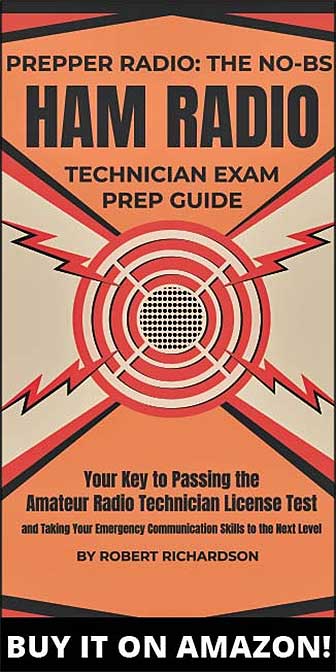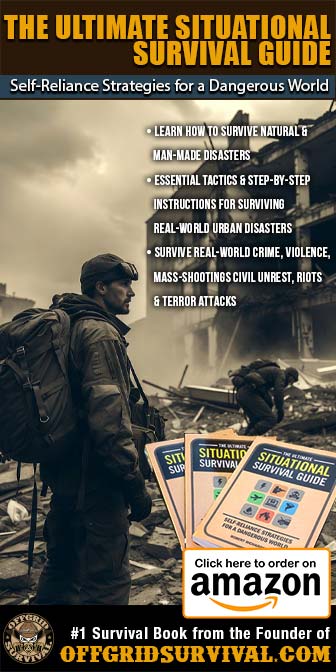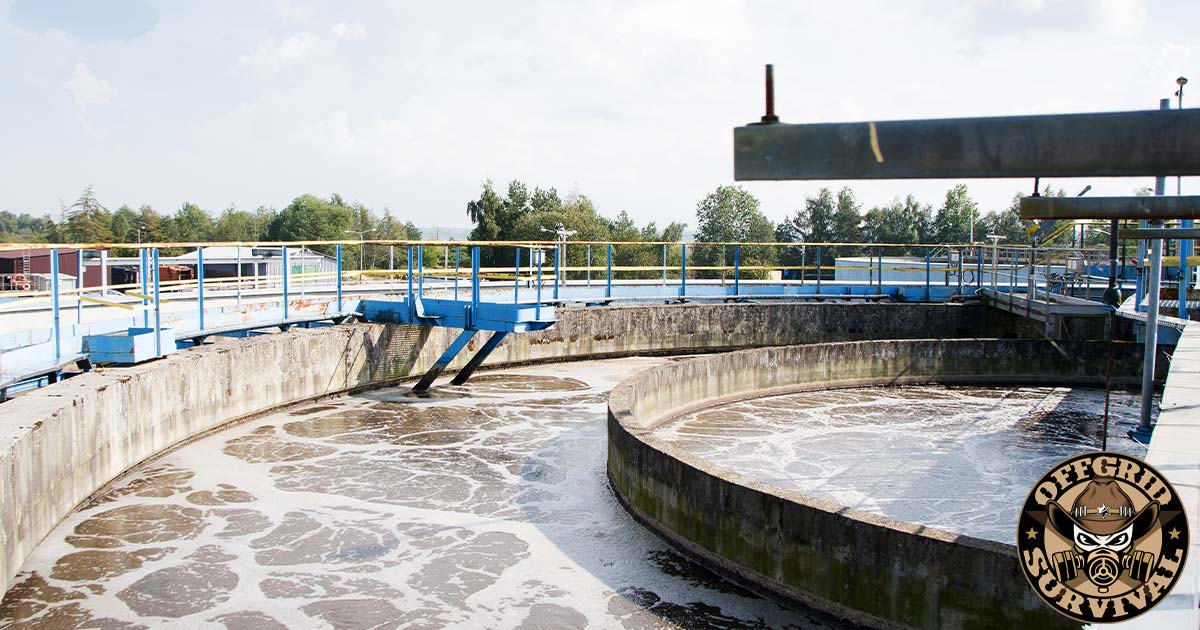Life rarely goes as planned. From those unexpected vehicle repairs that seem to hit you at the worst possible time, to the recent unemployment surge that’s hit this country, there seems to be a never-ending supply of financial turmoil. When things go bad financially, it can sometimes feel like the end of the world for those who are in middle of the crisis.
But just like every other area of preparedness, there are steps you can take to prepare yourself for the chaos; when it comes to preparing for economic troubles, the best possible step you can take is to establish an emergency fund.
What Is an Emergency Fund?
An emergency fund is exactly what it sounds like; it’s a reserve of money that is set aside to insulate you from financial troubles. Sadly that seems to be a foreign concept for most people in this country, especially those in government.
Our country sits at over 16 trillion dollars in debt, and the American public owes somewhere around 11.28 trillion in debt. That means the average citizen owes over $15,000 in credit card debt, almost $150,000 in mortgage related debt, and an average of $33,000 in student loan debt. One look at those numbers shows how much trouble we’re in as a nation; it also shows how unprepared most people are to deal with a financial emergency.
The subject of financial preparedness is something that we could never cover in a single article, but we do want to look at what you can do to prepare yourself for some of life’s most common problems.
Three Types of Emergency Funds
In the context of this article we are going to talk about three types of emergency funds. They are meant to help prepare you for those unexpected events in life: a job loss, an unexpected pregnancy, a short-term disaster, a vehicle repair, and so on.
Your Emergency funds should be split into three main categories:
- Cash-on-Hand Fund: This is a fund that is used to prepare for things like natural disasters, power grid failures or events where you have to evacuate your area. In my opinion, it’s a fund that should be kept out of the banks where you can immediately access it during an emergency. It can be used to pay for things like supplies, fuel, hotel rooms, etc…
- Short-term Fund: Your short-term fund is the fund that you go to when you have an immediate emergency. It can be used to pay for smaller emergencies, like an unexpected vehicle repair or replacing a major appliance that has broken. This should be kept at a local bank, and have a debit card attached to the account so you can immediately access your money. Short-term funds can also be used to get you through larger events where it may take a couple of days to access your long-term emergency fund.
- Long-term fund: This is a reserve of money that can get you through long-term difficulties like a job loss, or get you back on your feet after something like a major natural disaster. While this fund should be able to be accessed quickly, it shouldn’t be so easily accessible that you’ll be tempted use it for everyday spending.
The most important thing to remember is our funds are for emergencies; we don’t use these accounts to pay for vacations, fancy new cars or going out to eat. At some point, we are all going to be faced with some sort of crisis that requires us to spend beyond what we planned; when that time comes, having an emergency fund might be the best emergency preparation you ever made.
How Big Should Your Emergency Fund Be?
In the past, experts usually recommended having a 3 – 6 month in your long-term emergency fund. Based on the financial turmoil this country has been through over the last couple of years, I think that number needs to be much higher.
If you look at unemployment trends alone, you’ll see that the average time it takes to be rehired has skyrocketed during the last couple of years. That means your 3 – 6 month fund, while still being better than nothing, might not be enough to get you through these new troubling economic times.
While putting that much money aside in this economy can seem daunting, remember it doesn’t have to be done immediately. Rome wasn’t built in a day, and I doubt your emergency fund will be either. The important thing is doing something; even putting an extra $10 a week into your emergency fund will give you over $500 in a year. While that might not seem like a lot, it sure will be nice to have it if something happens.
Building Your Emergency Fund
A lot of people get discouraged when they can’t immediately put aside enough money to feel secure, but you must remember that even a couple of dollars a day can make a big difference over time.
If you’re still anxious and want to kick your emergency fund into overdrive, here are a couple of suggestions to get you started.
- Stop wasting Money: Have you ever sat down and really looked at what you spend? Most people don’t realize how much they spend on useless crap that does nothing to add to their quality of life. From that $5 cup of coffee, to those who are for some reason still paying for products that are literally killing them, you’ll be amazed how much money you can save by cutting down on non-essential items
- Sell your Junk: From eBay and Craigslist, to the good old fashion garage sale, most of us have loads of old junk that we can sell.
- Learn from what you Sold: Hopefully you made a lot of money from selling your old unused junk; hopefully you also learned a lesson here that will be with you next time you are tempted by one of those impulse buys. Yes you made some money selling that old junk, but how much did you lose by buying that product to begin with?
- Cut Down: Cable, gym memberships and cell phone contracts should all be evaluated to see if they can be lowered, or even cut out altogether. It’s all about priorities; when the next crisis hits, are those Cable T.V. shows you’re paying for going to help pay the bills?








I always take whatever I get back from my tax returns and put that into my e fund. I look at it as money I did not have and would not miss. This has built my efund faster than just trying to take money out of the budget.
Completely agree with all of your points here – particularly the cash-on-hand fund. Consider putting your long term fund into the highest yielding account possible for you without having penalties for early withdrawal. There is no reason not to have the long term fund work FOR you while cushioning your future.
Great article, and very good points. If we could just convince politicians to take the same advice we could make some real progress in getting this country back on the right track.
the best is the cash on hand. if there is a power grid failure any money you have in the bank will be totally unavailable to you. we all use to make jokes about the miser or hermit hiding his stash of money by burying it in the woods? but sounds like a dang good idea now days.
save it in junk silver,not fiat….except the very shrt term fund….
good info.
personally, I skip the bank and market parts.
most difficult part for me is to keep JUST enough e-funds in FRNs stashed and any excess converted to PMs or anything else that will retain value for future (preps, ammo, etc).
I estimated costs of replacing 2 hot water heaters, new transmission/repairs to 4×4, bail/bond, plumber, and every appliance and set aside that amount in FRNs for emergency fund.
other emergency fund is 12 months of bills.
no bank or safe deposit box involved except for having JUST enough in checking account to cover bills every two weeks.
forgive my ignorance, but what are FRN’s and PM’s?
@ Angus
Why do you keep emergency funds for bail/bond? Just curious.
I’m just getting started rebuilding emergency funds post-divorce, but have made decent headway. It’s a grind, but after a short while, you’ll be able to look at what you’ve accumulated and breathe at least a small sigh of relief, knowing you’ve got your own backup when the time comes.
Every paycheck right now I put at least a little cash into my short-term emergency fund. I never called it that, but I’m adopting that name now.
I also buy some silver whenever I can, which I guess could fall into the mid-long term emergency fund, but I really consider it “wealth-building.”
Also, I estimated the cost of Christmas, birthdays, etc for the whole year, and with each paycheck, I put aside a % of that. It’s not emergency funds, but if something happens before I have full emergency funds, this will help in a pinch, so it’s serving a dual purpose for now.
I don’t know if it’s been mentioned here yet- but the best way I’ve found of saving cash on hand was told to me by a co-worker. You simply never spend $5 bills. Every time you get one you put it in an envelope. If you do this all the time you would, relatively painlessly, save a decent amount of cash on hand. Even my wife does this!
I always round up in my checking account.
Example: If I spend $23.42, I round it up to $24.00. By the end of the month, it adds up and is moved into my savings account. Also, when I deposit a check, I only add the dollars and not the cents. So, If I deposit a check for $254.78, I only add $254.00 to the balance.
I’ve sold everything I don’t want or need, cut off my land line and went to the cheapest cell service available in my area. It’s an amazing feeling not being weighed down by useless junk and clutter.
The most important suggestion is to stop buying things you don’t need, and eliminate those creature comforts like cable, cell phone contracts, etc. I discontinued my cable TV 10 years ago, I don’t miss it. No cell phone contract. I bought a $50 cell phone from Verizon and bought a pay as you go card. $100 for one year. Pay off your car and run it until it drops. Change oil regularly and take care of it. It will last a long time.
Hate to be the wet blanket but the fund this article refers to is a bank account or cash on hand. Question: Exactly what good is that going to be when the economy collapses and dollars are worth not even what they are printed on?
I would suggest to you that buying silver, ammo, whiskey, cigarettes, etc. for barter will be smarter than cash. Even copper pennies will be more valuable than cash. Also, we bury caches on our bug out route with a little cash, silver, pistols and ammo, smokes and other stuff so we can re-supply if need be.
I have had an emergency fund for years…do not keep it in a bank or credit union! Recommend that you keep as cash in a heavy safe at home in a hidden location like a safe room. I have had to dip into this “cash” on a few occasions but I repay it back right away. I keep $5k in 100s and 20s in one location and another $5k in another in $100 bills. Use this money in an actual emergency situation only -or- paying cash for needed products -or- services on short notice. Checks leaves a paper trail. Pay cash for everything you can.
Excellent article…keep them coming.